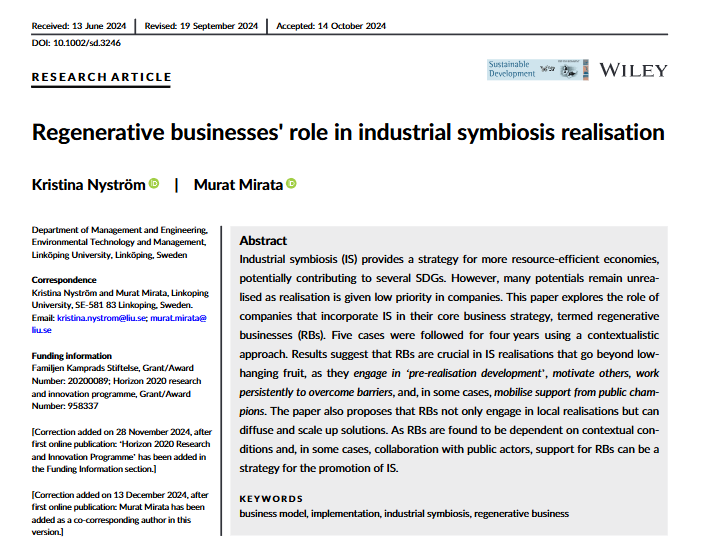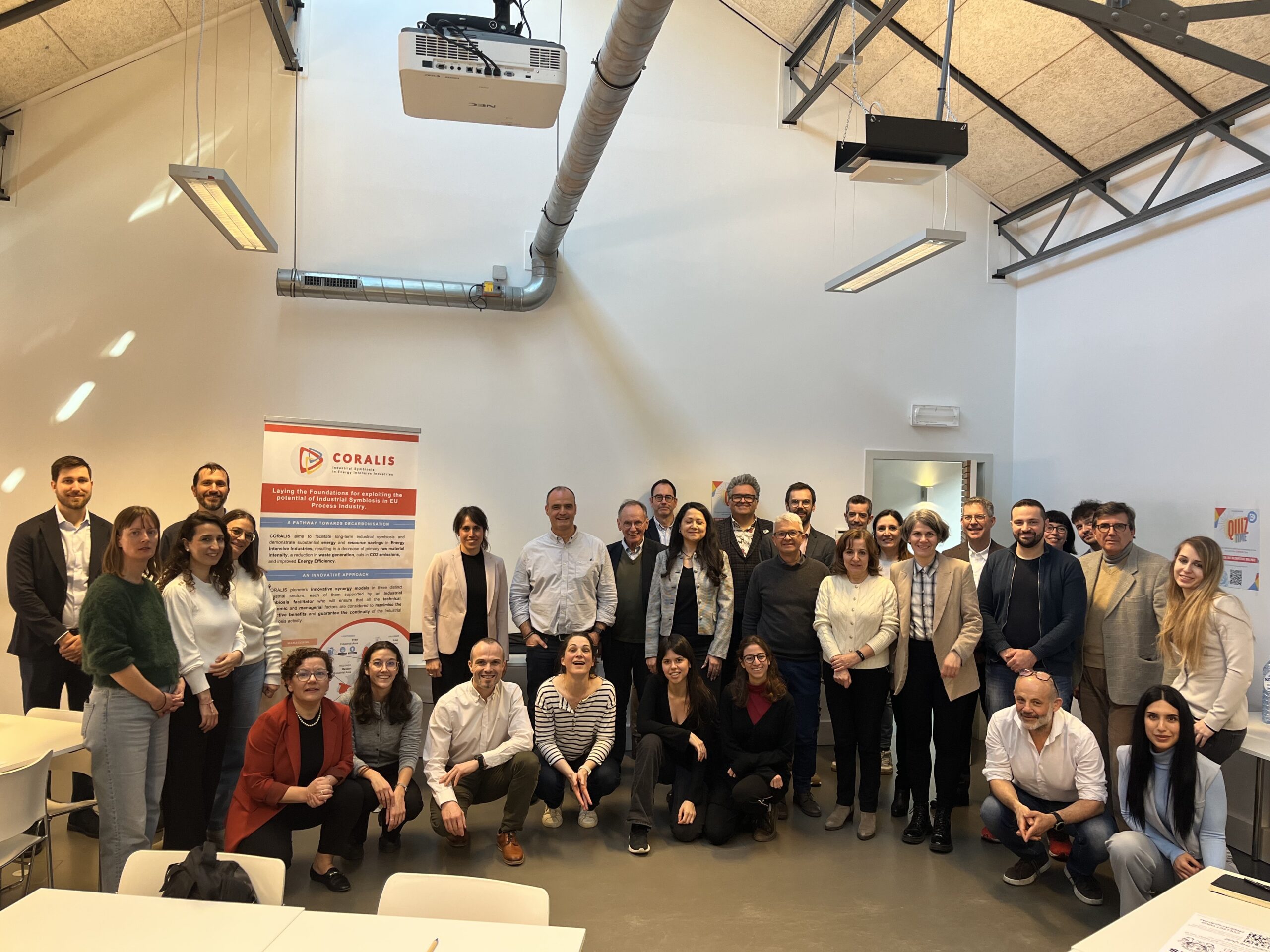Industrial symbiosis (IS) offers a powerful approach to resource efficiency and circular economy transformation, yet many of its opportunities remain unrealised due to low prioritisation in companies. A new publication authored by Kristina Nyström and Murat Mirata from Linköping University explores the role of regenerative businesses (RBs)—companies that embed IS into their core strategies—and their contribution to making IS a reality.
Based on a four-year study of five cases, the research highlights how RBs play a crucial role in driving IS beyond simple, low-effort exchanges. These businesses actively engage in pre-realisation development, motivate other stakeholders, and persistently work to overcome technical, economic, and regulatory barriers. In some cases, they even mobilise support from public actors to facilitate IS implementation.
Beyond local applications, RBs can also help scale and diffuse IS solutions, contributing to broader adoption. However, their success depends on contextual conditions and collaboration with public entities. Supporting RBs could therefore be a strategic way to accelerate industrial symbiosis and advance sustainability goals.
Read more here.







